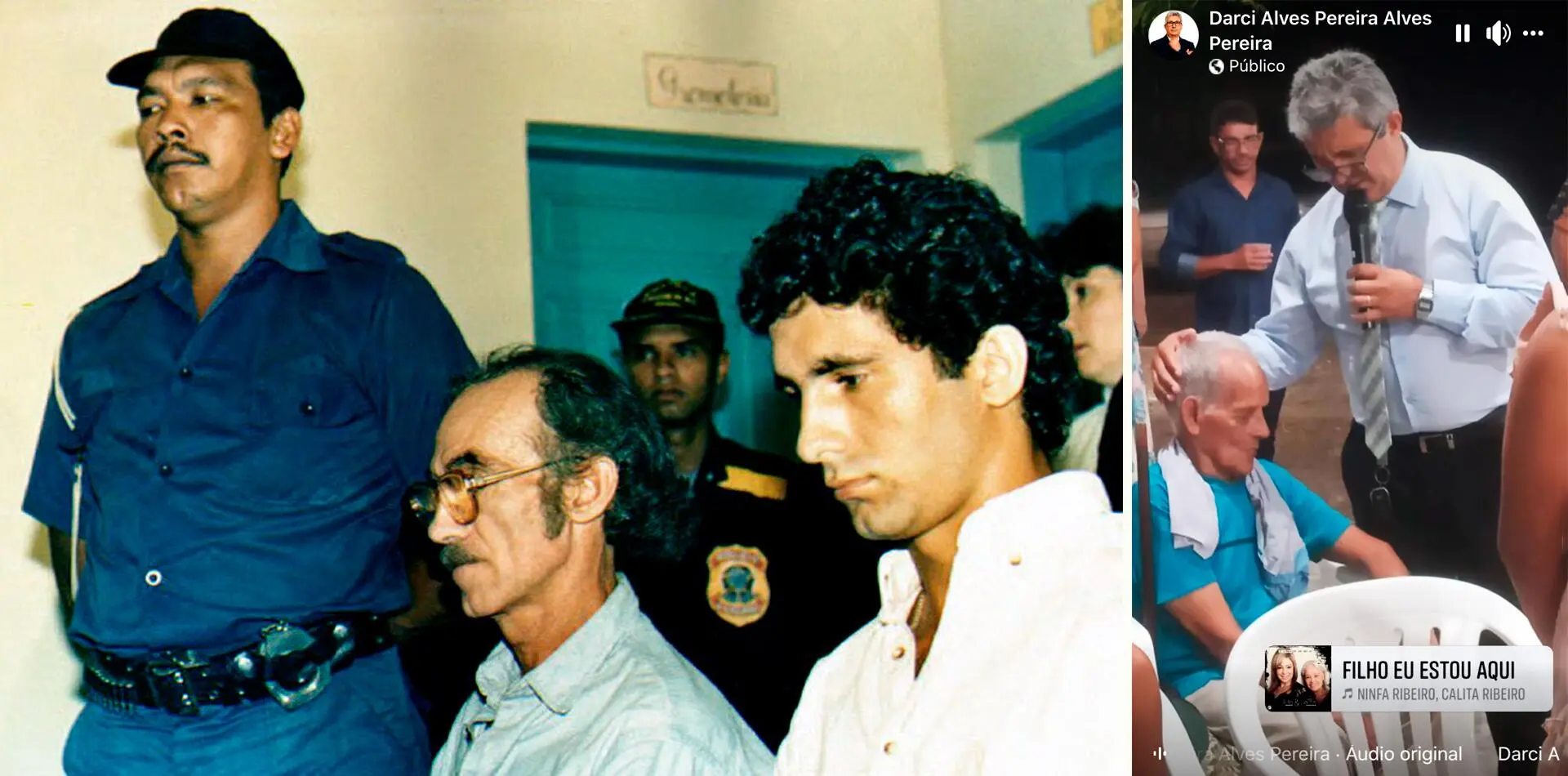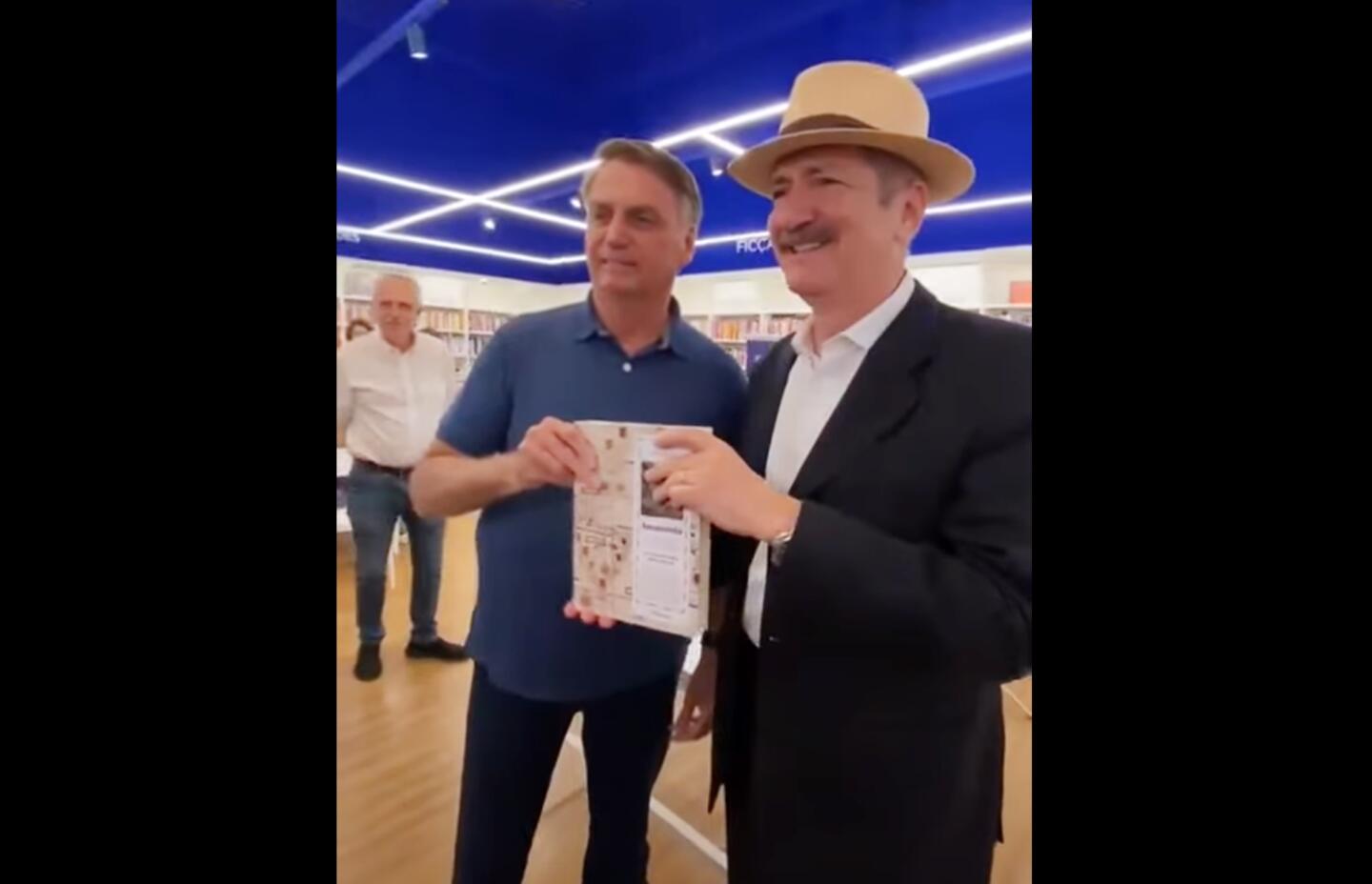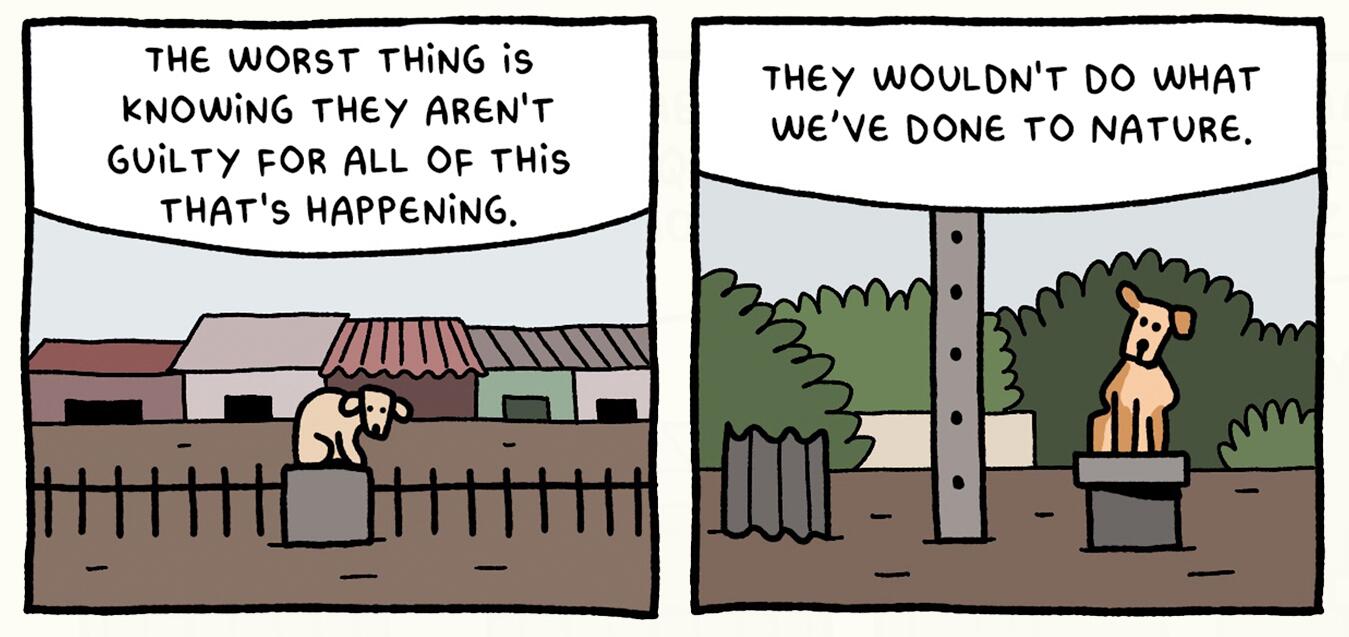It was the perfect plan. After his still youthful face was splashed across the papers because he had killed one of Brazil’s greatest Amazon defenders, Darci Alves Pereira decided to pick up his life again, this time under a different name and an invented persona. The confessed assassin of Chico Mendes became “Pastor Daniel,” moved to a town of 27,000 inhabitants along the Trans-Amazonian highway, in the state of Pará, and entered politics. In Medicilândia, a city named after the dictator Emílio Garrastazu Médici, he camouflaged himself among his own people, destroyers of the Amazon.
One of many, he dealt in cattle, cacao, and land. In between, Darci led worship services at a failed church. A perfect reflection of the ruralist Bolsonarism that has thrived in recent years, his reinvented life landed him the presidency of the local chapter of the Liberal Party, whose membership includes far-right former president Jair Bolsonaro. Darci became a precandidate for council member in this year’s elections—which might have been a first step towards an eventual seat in Congress, in Brasília, had the site ((o))eco not revealed that “Pastor Daniel,” leader of the right-wing party in town, and Darci Alves, killer of Chico Mendes, were one and the same person.

Darci (right) and his father Darly were convicted of murdering Chico Mendes. Darci later became a pastor in Medicilândia. Photos: AFP/Facebook
Reporter Bruno Abbud and photographer Christian Braga traveled to Medicilândia in April for SUMAÚMA to reconstruct Darci’s transformation into Pastor Daniel. The man who interrupted the fight of the famous environmentalist started a new life in a town where “anonymous people come from elsewhere to die.” He had a free pass to do so in an Amazon where murderers of both human-bodies and forest-bodies mix, in one of the most deforested municipalities of Brazil, where Bolsonaro won almost seven out of ten votes in the last elections.
After the press had pulled the curtain on Darci’s upstanding citizen act, he was expelled from the Liberal Party by Valdemar Costa Neto, who couldn’t afford to step out of line—the boss of the country’s main right-wing party, Costa Neto has his own issues with the courts. Convicted, and later pardoned, for his involvement in a major corruption scandal—the Mensalão votes-for-cash scheme devised by the Workers’ Party—he is currently under investigation on suspicion of helping engineer the attempted coup of January 8, 2023, which would have kept Bolsonaro in power, aided by the military.
In his corner of the Amazon, Darci’s neighbors point to him as a possible financier of the attack on democracy. He and his wife attended pro-coup demonstrations and, not long before January 8, he sold many head of cattle, according to people living in the region. “They say around here that he backed the pro-coup demonstrations with BRL 60,000 [USD 12,000]. Others say 30. Fact is, they sold a lot of cattle around then,” local residents told Bruno and Christian. Across the country, people with ties to agrobusiness are under investigation on suspicion of supporting the coup attempt. Darci denies this and other crimes, including the murder of Chico Mendes, although he provided a detailed confession to the police at the time.
Medicilândia and Brasília lie over 1,200 miles apart but are connected by an invisible thread. The thread of death. The land-grabbing elite of towns like Medicilândia depend on the political elite of Brasília to continue destroying and profiteering. These two elites are oftentimes the same. To keep their clans in power, the Brasília of the far right—which has left the presidency for the time being but still inhabits Congress—depends on towns like Medicilândia, on the destruction of the forest, and on the elimination of lives that get in the way of greed. These two ends of the thread feed on each other. No wonder Bolsonarism planned to “let the cattle through”—that is, weaken environmental protections to facilitate exploitation of the Amazon.
With Bolsonaro barred from running for office for eight years, the Amazon is up for grabs. And guaranteeing political support at the municipal level will be vital for the 2026 presidential elections. National candidates will enjoy greater visibility and strength if backed by whoever controls local politics. Veteran politicians like former Communist Party member Aldo Rebelo, now secretary of international relations for the city of São Paulo, know this. From late 2022 to early 2023, Rebelo made his base in Altamira, Pará—among the country’s most deforested municipalities—where he crafted alliances with land thieves and defended illegal miners along the Trans-Amazonian highway. He gave talks in various states of the Amazon while still showing up at military clubs in Southeast Brazil. This May, the former Communist, who defends a nationalist “agro-military” plan for Brazil, released a book about the Amazon in which he perseveres with his baseless crusade against national and foreign NGOs that are working in the forest to protect humans and more-than-humans. The launch party for the book was attended by Jair Bolsonaro as well as by a right-hand military man from the latter’s days as president, retired General Eduardo Villas Bôas.

In his “agro-military” crusade, former communist Aldo Rebelo released a book on the Amazon and received right-wing extremist Jair Bolsonaro. Photo: Reproduced from YouTube TV 22
This same death thread ties Medicilândia and Brasília to South Brazil. For more than a month, the state of Rio Grande do Sul has been in the throes of one of Brazil’s most extreme weather events ever. Among the victims are people like Cacique Timóteo Karay and his nephew Pablo, who told SUMAÚMA how their village of Guarani was decimated by Guaíba River flood waters and how they lost everything except their land, which they can’t leave, not even for a public shelter. Instead, they have to stay and run the risk of drowning to death so they don’t lose their territory—which could be converted into constructed area or end up in the hands of agrobusiness. Other victims are the hundreds of more-than-humans rescued from a watery grave by the volunteer Isis Pacheco Brancher, portrayed in this issue by Pablito Aguiar, comics journalist.
What happens in towns like Medicilândia affects many people, including Cacique Timóteo and Pablo, the more-than-humans saved by Isis, and the half million humans displaced by the rain that won’t stop falling in a state unprepared for this new climate reality, wrought by a dominant minority of humans. Bullets fired by families like
Darci’s exacerbate events like these. Fires set in the forest to make way for pastures also alter the climate. The destruction of the Amazon doesn’t stop with the Amazon.
Darci was booted from the Liberal Party, but apparently he hasn’t given up on politics. He told reporter Bruno Abbud that “several parties” have approached him. It will be no surprise if Darci’s reinvented fame empowers him to go after an even bigger post in this October’s municipal elections. For some on Brazil’s far right, killing those who defend the forest is the same as killing the forest: just part of doing business.
This year’s municipal elections will be even more crucial to our future. The tragedy in southern Brazil shows we don’t have much time left to slow down the rate of climate collapse—no longer an impending theoretical but already here. The Amazon has a key role to play, and this is why its municipalities cannot remain in the hands of power groups that run land-grabbing operations in Brazil, pass laws to facilitate climate destruction, and finance coups against democracy to perpetuate destruction with impunity.
The story about Darci and Medicilândia kicks off SUMAÚMA’s coverage of these municipal elections. Over the coming months, we will explain how local politics works in the Amazon and how its ties extend well beyond city borders. At SUMAÚMA, we believe Brazil’s still nascent democracy is unfinished. It needs to incorporate all human and more-than-human people and their future generations. In 2024, what is up for vote is life itself—both the lives here today and those born in the future.

Cartoonist Pablito Aguiar tells the story of how volunteers have rescued more-than-humans from Porto Alegre flood waters
Text: Talita Bedinelli
Fact-checker: Plínio Lopes
Proofreader (Portuguese): Valquíria Della Pozza
English translation: Diane Whitty
Spanish translation: Meritxell Almarza
Photo editor: Lela Beltrão
Copyediting and finishing: Natália Chagas
Editorial workflow coordination: Viviane Zandonadi
Editor-in-chief: Talita Bedinelli
Editorial director: Eliane Brum





